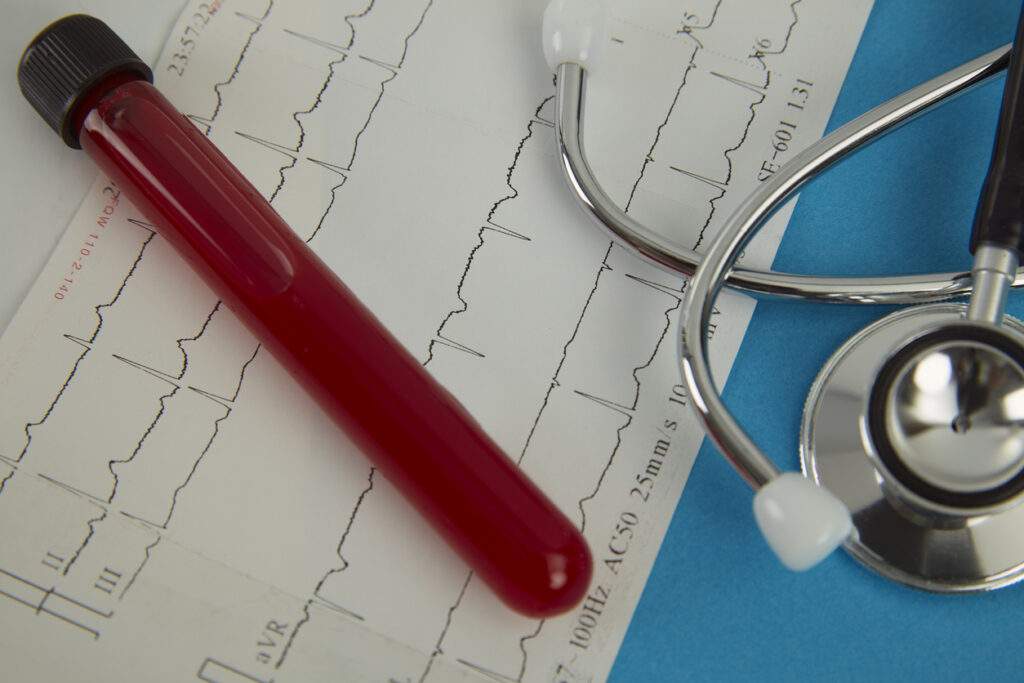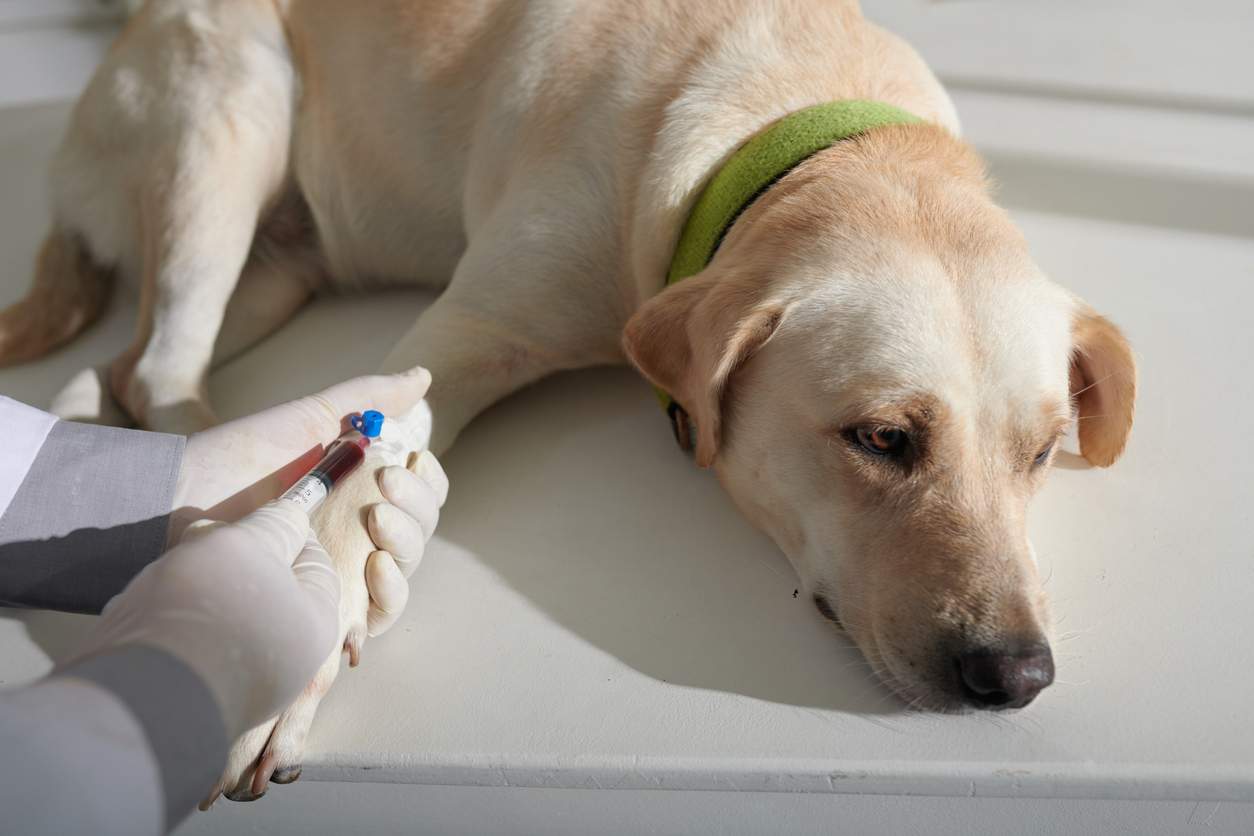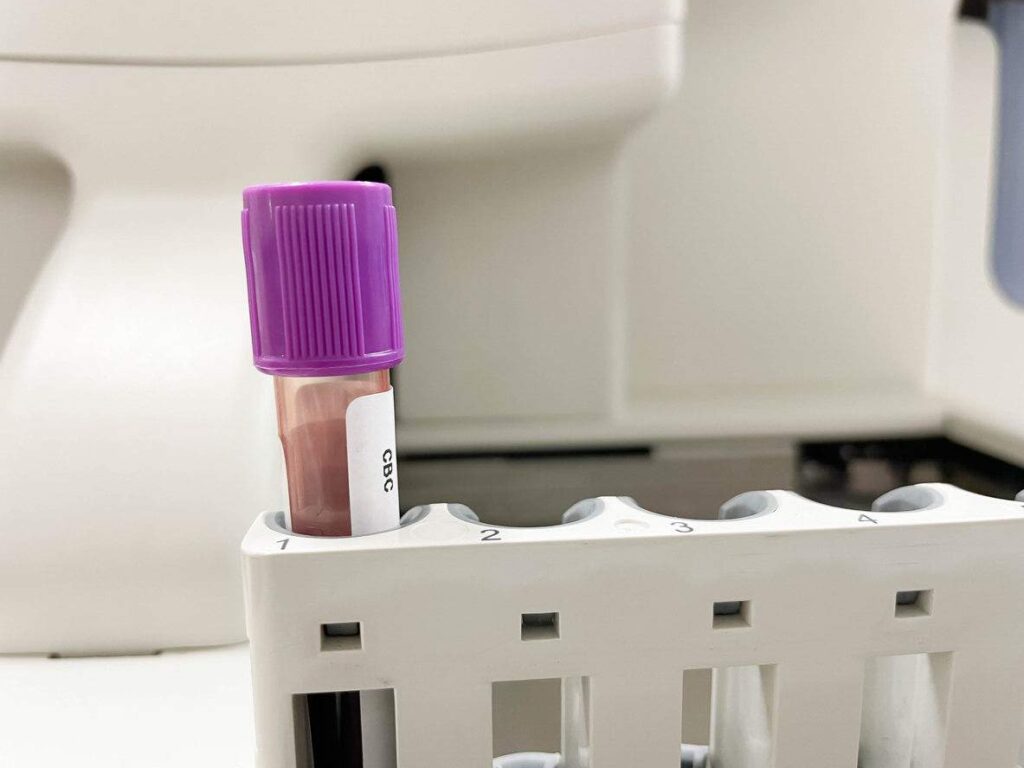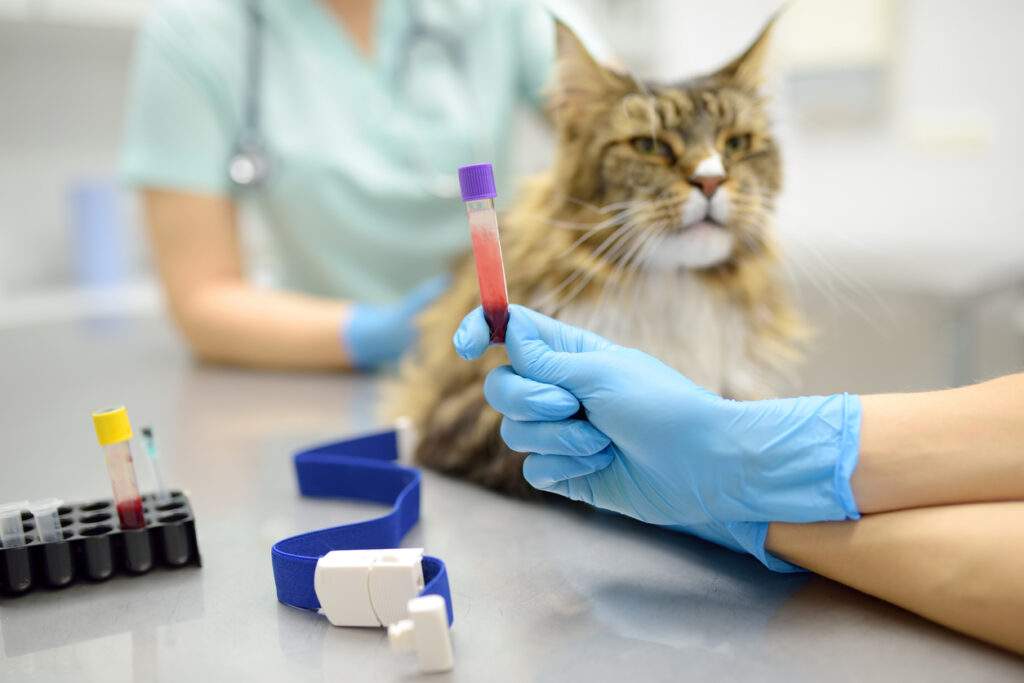Your pet seems happy, healthy, and energetic—so why is the veterinarian recommending blood work? Understanding the importance of getting pet blood work for dogs and cats on a routine basis helps prevent and catch issues to keep your fur family member healthy. Learn about why blood tests for pets are needed even when they appear healthy.
Why does my vet want to do bloodwork?
While many pet parents recognize the need for blood work when their pet is sick, this powerful diagnostic tool also provides valuable information during times of health.
Join the UrgentVet care team as we take a closer look at how blood work benefits pets at every life and health stage.
What is blood work for dogs and cats?
Blood work for dogs and cats generally consists of two standard tests. These include:
- Complete blood count (CBC) — The complete blood cell count measures the cellular and liquid portions of your pet’s blood. This includes red blood cells, white blood cells, platelets that help with clotting, and plasma—the liquid portion of the blood. Abnormalities can signal infection, inflammation, dehydration, immune system problems, or anemia.
- Blood chemistry panel or profile — The chemistry profile measures organ function, including the kidneys, liver, and pancreas. It also checks electrolyte levels and blood glucose. Abnormalities can signal organ failure or injury, toxicity, electrolyte imbalance, or metabolic problems.
Additional lab work may be performed for sick pets, those with chronic conditions, or to ensure they are healthy enough for anesthesia or surgery.
Why do healthy pets need blood work?
Routine pet blood work provides powerful benefits for seemingly healthy dogs and cats. These include:
- Recognizing hidden health problems — While many dogs and cats look and act “normal,” they can be hiding pain or illness. This is an instinctive behavior that’s meant to protect them from larger predators. Early detection of disease means faster treatment, perhaps even before visible changes occur.
- Creating a health baseline — Every pet is different. Blood work done while your pet is healthy shows the veterinarian what’s normal for them. If they get sick later, the veterinarian can compare past results and spot abnormalities more easily.
- Ensuring safety – Before surgery or dental cleanings, pre-anesthetic blood work ensures your pet can safely handle sedation and medications.
- Supporting preventive care — Blood work gives your veterinarian a full picture of your pet’s overall health. It helps them make the best recommendations for things like diet and medications.
Pet health problems that can be caught early with blood work
Regular blood work for dogs and cats can help detect serious conditions in the early stages, even when pets appear perfectly normal. Common examples include:
- Diabetes
- Liver disease
- Kidney disease
- Thyroid problems and other hormone-related issues
When these conditions are diagnosed early, treatment can begin right away. This gives pets a better chance at greater lifelong health.

Sick pet? Blood work helps find answers fast
When your pet is sick or simply not acting like themselves, blood work can give us clues about what’s wrong.
Some of the ways we use blood work to diagnose and treat sick pets include:
- Narrowing down possible causes for vague signs like changes in eating or drinking habits, vomiting, diarrhea, weight loss, and lethargy
- Identifying conditions like dehydration, anemia, infection, and inflammation
- Monitoring responses to medications and treatment
How often do pets need blood work?
Your regular veterinarian will have specific recommendations for your pet based on their age, health, and lifestyle. Blood work is generally recommended for pets with signs of illness, such as vomiting, diarrhea, weakness or lethargy, and changes in eating or drinking habits.
General recommendations for healthy pets may include:
- Puppies and kittens — Before spay or neuter surgery, or to screen for inherited issues
- Adult pets — Every 12 months during the wellness visit
- Senior pets — Every 6 to 12 months, or more often if health issues are present; other tests, such as urinalysis, thyroid hormone tests, and specific kidney function tests, may also be recommended
Is blood work safe for pets?
Yes. Blood work for dogs and cats requires only a small sample and can usually be collected with minimal stress to the pet. In fact, some pets don’t even realize they’re having their blood drawn!
What happens after my pet gets blood work?
Your veterinarian will review your pet’s test results and explain them to you. If the blood work is performed in-house, this may be during your appointment. If the sample is sent to an outside laboratory, your veterinarian may follow up in a few days via phone or email.
Based on the results, next steps may include:
- Celebrating your pet’s health and continuing recommended care
- Returning for follow-up testing
- Starting treatment — If blood work reveals a disease in its early stages, simple actions such as a diet change or medication may be enough to manage it. If your pet is already showing signs, more advanced care may be necessary.
Pet Blood Work: The ultimate health power tool
Pet blood work doesn’t just provide answers for sick dogs and cats. It helps healthy pets stay that way by giving your veterinarian deeper insights into their internal well-being. In sickness and health, blood work is always a smart choice for your pet.
When your pet isn’t feeling like themselves, UrgentVet can help. Our convenient locations and after-hours availability ensure timely, expert veterinary care for non-life-threatening conditions. From minor irritations to messy diarrhea, we’re here for it all. Come in or check in online—because your pet can’t wait to feel better.







